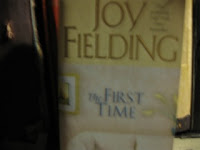Is it just me or is there anyone else that loves a great book so much that upon reading the last sentence you walk away thinking you’ve just made a new friend? While my guests are enjoying a summer break I thought it would be fun to share some Take-Away values of some wonderful novels I’ve enjoyed. These are just a mere glimpse of some favorites.
WORDS by Ginny L. Yttrup
This is a story about a 10-year-old girl who copes with both her mother abandoning her and sexual abuse from the mom’s boyfriend, and the bond the girl makes with a woman who too is seeking love. Sounds like a dark story? Well, it’s definitely not a beach-read, but I found it very uplifting. My take-away value: God’s love for us. Directly quoting from the novel, “He loves us, little one, not because of who we are, but because of who He is.”
A FRIEND AT MIDNIGHT by Caroline B. Cooney
This YA (young adult) novel is by one of my favorite authors. How can one follow God’s commandment to honor thy father if this supposedly loving dad twists the heart of your kid brother and then dumps him upon tiring of the boy? My take-away value: we always need help and God is the one friend who is always there for us. We can ask Him to help us and not worry about the consequences because He has our best interests in His heart. Always.
THE FIRST TIME by Joy Fielding
Want to read a story that will make you chuckle, weep, and sigh? This is a shockingly beautiful love story from a well-known suspense author. The first line grabs seizes attention: “She was thinking of ways to kill her husband.” A story about what happens when a marriage fails and then grows again during an unexpected crisis. My take-away value: tough times don’t necessarily have to kill a relationship, and that love comes in many different sizes and shapes, and is forever changing.
SALEM FALLS by Jodi Picoult
This is the one novel that had made me a Jodi Picoult fan and had me driving into Vermont to meet her at a book signing. A true page-turner, this is about a present-day witch trial. My take-away value: happy endings can happen to people whom once thought they were only slated for anything else, and be careful in what you think about others.
Would you like some help in seeing The Garden through the eyes of Adam and Eve (Havah)? Okay, that’s an understatement. Read this book and you will be living that biblical passage, experiencing the sounds, smells, tastes, touch, and every vivid emotion as possible. My take-away value: getting to experience how the first man and woman may have lived.
ALMOST HEAVEN by Chris Fabry
A story about a simple man who discovers his mission in life is not that simple, and throw in an angel whose job assignment has him wondering if God has made a mistake. Talk about an interesting plot twist! My take-away value: keep following God even though the path seems odd at times because He’s never wrong.
THEY ALMOST ALWAYS COME HOME by Cynthia Ruchti
Should a wife think twice about the husband she believed she knew when he doesn’t show up? Could his current disappearing act be the one for good? My take-away value: don’t give up on a marriage that God made possible, even if it doesn’t seem "normal."
IF I STAY by Gayle Forman
This is another YA novel I’ve really enjoyed written by an author with a fabulous voice. What do you do if you’re young, talented, have a great family, a loving boyfriend, are about to start on a journey to accomplish your goals, and then have it all taken away within seconds? My take-away value: tragedy can pass like a storm. Sure, there can be damage and devastation, but what remains is the love of a faithful person.
WHAT ARE SOME TAKE-AWAY VALUES OF YOUR FAVORITE BOOKS?


























